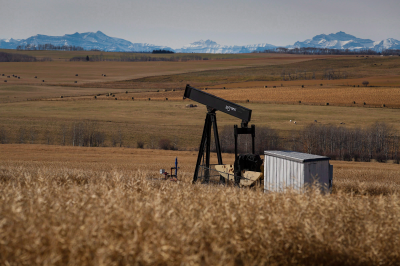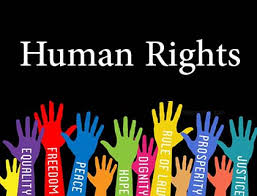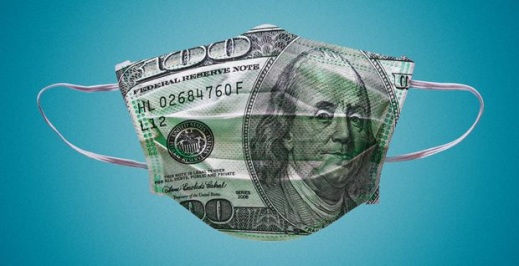Author: Michael Bloomfield
As Covid-19 recedes will we resume life as before or create a fairer, more compassionate and self-sufficient society.

That struggle has begun with globalization promoters touting great economic opportunities as 5G arrives and consumerism re-ignites around the world. Globalization has somewhat reduced poverty and improved education and healthcare in developing countries but at a price, a new colonialism primarily benefiting the rich and powerful.
Covid-19 exposed serious flaws in a global system emphasizing economic gain. Over 85% of our antibiotics come from China. Canada imports more food than it exports; 25% of our needs are imported. Surrendering self-sufficiency for food and medical supplies for cheap consumer goods is reckless.
Who gained most from globalization? Oxfam reported in 2018 the world’s 26 richest people held more wealth than the poorest 3.8 billion people.
Exorbitant CEO pay further exemplifies the growing gap between rich and poor. David McKay of the Royal Bank is paid $14.5M/year, Apple’s Tim Cook received $136M in 2018 and Amazon’s Jeff Bezos takes $9M/hour while the average Amazon worker gets $15/hour.

Conversely the lifetime income of a Canadian earning $50,000/year for 40 years is $2M. Workers in the 25 poorest countries, people providing us precious metals and luxuries earn less than $1,000/year if they can find work.
The gig economy was another injustice exposed. Workers without benefits or job security were on their own while their employers demanded government aid. The gig is up!
Adding insult to injury, wealthy Canadians and corporations don’t pay their fair share of taxes. Canadians for Tax Fairness estimate losses of at least $8B/year to personal tax evasion and avoidance.
The corporate story is worse. Corporate Knights reported that from 2011-2016 Canada’s 102 largest companies avoided $62.9B in income taxes. The scales are tipped so favourably towards large corporations that Canadians paid $145B in income tax in 2018 while corporations paid $41B. As corporate taxes were slashed individuals and families have had to make up the difference. CRA estimates about 25% of corporate taxes were unpaid, money needed for education, healthcare, social housing and a healthy environment.
The cozy relationship between business and government must change. It has compromised democracy and created a dependency on hand-outs. Companies are heavily subsidized by society through generous tax-breaks, credits and loans, infrastructure, healthcare etc. Where’s our return on investment?

The fossil fuel industry is a good example of malfeasance. In Alberta alone the liability for cleaning up roughly 3,500 abandoned oil and gas wells and the tar sands are estimated at $30B and $200B respectively. The province holds 1% security in a clean-up fund.
Bailouts are a similar story. Bombardier has been rescued more often than the neighbour’s cat. During the 2008/09 meltdown Canada provided $13.7B to the auto industry. Some companies never repaid their government loans while forcing creditors and employees to accept concessions. Canada took no equity and taxpayers paid for it. Why does government refuse to identify defaulters?

Canada also has a poor record for honouring international agreements on corruption, human rights, environment and money-laundering and the appalling honour of being home to the most firms on a World Bank blacklist of corrupt companies.
Corporations have persuaded, cajoled and bribed officials in other countries to accept hazardous mines and e-waste and produce luxuries for us instead of food for their people. Forests and rivers have been trashed and we’ve turned a blind eye to child and slave labour so that we can enjoy cheap carpets, shrimp and cell phones.
Canadian mining companies have a terrible track record, exploiting lax standards to ignore human rights and pollute environments local people need for food and water. Growers of strawberries, tea and avocados are typically no better. Our government calls it the Canada Advantage. More like taking advantage.
And before we get too smug about corporate behaviour, each of us has a part in this messy business. In the global system we are the rich and powerful. We work for and invest in companies that take advantage of low wages and poor labour, human rights and environmental standards. CPP and private pensions invest in mining, tobacco, weapons and private prisons.
Our lavish lifestyles corrupt and kill, exploiting children for chocolate, supporting slavery on shrimp boats and pushing many wild species to the brink of extinction for more burgers and coffee. Are we too content to care?
Since the 1950s every natural system has dramatically declined. We’ve polluted and over-fished the oceans, poisoned and depleted rivers and lakes, removed more than 50% of the world’s forests and flooded and paved productive farmland.
We all saw people fighting over toilet paper and governments stealing vital supplies from each other in a nationalistic frenzy. We can and must do much better.
However, if we want a peaceful, healthy and prosperous world we must address the systemic flaws of globalization 1) inequity within and between countries 2) consumerism’s role in injustice and environmental degradation, and 3) our disastrous relationship with nature.
Personally, we must personally adopt ethical practices in how we live and work and oppose governments and corporations doing harm in our name. Together we must urgently adopt clean energy as part a world-wide movement to meet our needs without harming other people, future generations and other species. It’s time for real change, lasting change, the kind we can be proud of and for which future generations will say thank you.

Michael Bloomfield, ecologist, philanthropist and educator
Founder and Executive Director, Harmony Foundation of Canada
www.harmonyfdn.ca
Earth Day April 22, 2020
Recommended Actions for Your Consideration
For Individuals and Families
- Celebrate real heroes who make our communities healthy, well-educated and prosperous; teachers, healthcare professionals, farmers, artists etc. Celebrity culture is corrosive.
- Buy local and support our farmers; they are essential for our food-security.
- Demand strong universal healthcare and well-funded schools.
- Insist that our elders receive compassionate care from better trained and paid staff.
- Stop real estate speculation. We need homes to raise and shelter our families.
- Choose a zero emission vehicle. Gasoline cars are like billions of burning cigarettes, bad for health and environment.
- Push for greater investment in quality, affordable public transit.
- Eat less meat; animal agriculture harms our health and the environment and causes animal suffering.
- Stop eating shrimp involved with slave labour and destruction of important wetlands.
- Choose chocolate from companies not using child labour or dangerous pesticides.
- Reduce, repair, re-use. Avoid disposal products; they waste resources and harm the environment.
- Stand up against racism, discrimination and hate. Silence is the enemy of justice.
- Oppose arms sales to non-democratic countries; self-defence only.
- Demand CPP and your fund manager stop investing in enterprises harmful to people, animals and the environment.
- Choose businesses that support local arts, education, healthcare etc. Box stores and online sellers often contribute little or nothing to communities.
- Back tougher laws and enforcement on environment, labour and human rights.
- Get involved with and support practical reconciliation with First Nations.
- Make family, community and healthy, meaningful lives our priority.

For Society
- Support local farmland and farmers. They are essential for our food-security.
- Strong universal healthcare and well-funded schools. They have been under-valued and under-funded for too long.
- Compassionate eldercare and better training and salaries for staff.
- Stop real estate speculation. Only citizens or permanent resident should be entitled to buy residential. We need homes to raise and shelter our families.
- Promote zero emission vehicles and greater investment in quality, affordable public transit.
- Ensure that The Business Development Bank of Canada (BDC), Export Development Canada (EDC) and all government funding for business clearly serve the public interest.
- Demand stronger regulations for animal agriculture that protect land and water, eliminate antibiotics and growth hormones and stop animal cruelty.
- Stop shipping our electronic and other waste to other countries.
- Reduce packaging waste and disposable products and pressure companies to produce more durable, longer lasting products.
- Stronger laws to reduce racism, discrimination and hate, including online.
- Demand that the behaviour of our companies overseas is at least as good on environment and human rights as it is at home and that must improve too, especially in the territories of indigenous people who are not treated equally either. Child labour must end.
- Make it illegal for companies to lobby government secretly; all such activity must be publicly revealed and balanced through fairer access for public interest advocates.
- Stop the revolving door between government and business; it’s a dubious form of delayed compensation. There needs to be a waiting period of at least 3 years.
- Stop arms sales to non-democratic countries and for political adventurism; self-defence only.
- Ensure our universities serve the public not donors or internal ambitions.
- Stop CPP from investing in tobacco, arms, prisons and other harmful enterprises in Canada and around the world.
- Impose their fair share of taxes on foreign and online companies operating in Canada.
- Rebuild domestic industries for food, medical and other essential supplies and stop relying on global supply chains for these goods.
- Tougher laws and enforcement on environment, labour and human rights.
- Increase practical reconciliation with Canada’s First Peoples.
- Increase foreign aid. Canada spends 0.27 percent of Gross National Income (GNI) on foreign aid. That’s less than the 0.3 average of other donor countries, far below the UN target of 0.7 percent we agreed to in 2005.
- Adopt strict gun control and ban assault weapons in Canada.


